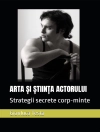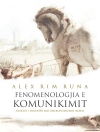Social forms of religion – the ways in which individuals and groups coordinate religious practice – produce community at the same time as they enable individual religious experiences. A mix of group, organization, market exchange, network, event, and/or other forms characterizes different traditions. Shifts in dominant social forms within a religious tradition are catalysts and expressions of religious transformation alike. The contributions to the volume test this argument by presenting Catholic, Protestant, Charismatic/Pentecostal, Orthodox, and Mormon case studies from Europe and the Americas.
Compre este e-book e ganhe mais 1 GRÁTIS!
Língua Inglês ● Formato PDF ● Páginas 330 ● ISBN 9783839468265 ● Tamanho do arquivo 2.4 MB ● Editor Maren Freudenberg & Astrid Reuter ● Editora transcript Verlag ● Publicado 2024 ● Edição 1 ● Carregável 24 meses ● Moeda EUR ● ID 9310304 ● Proteção contra cópia DRM social












